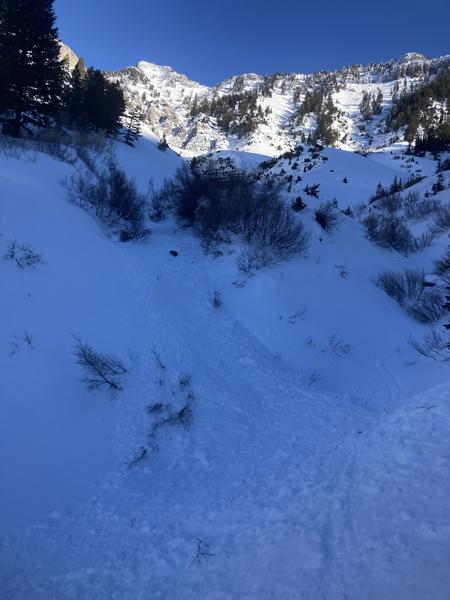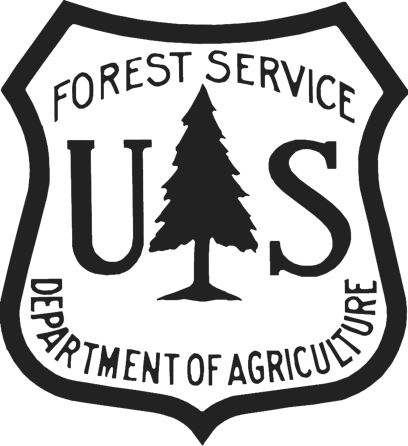You don't sink into the deep supportable snow more than a couple inches in most places. Even if you get off you sled, your don't sink in all that far, and it's pretty easy to walk around in boots in many areas. We found a rain-crust all the way to the top of Beaver Mountain from last week's storm (1-6-2022), now capped by a dusting to couple inches of frosty recrystallized powder. We found apparently stable snow at upper elevations in the Central Bear River Range, with easy traveling conditions on a mostly firm snow surface. The terrain is now nicely filled in and smoothed out. Many rock outcroppings and smaller cliff bands are completely covered by a heavy blanket of thick and now pretty hard snow from last week's monsoon and last year's Holiday storms.
Here is what we found on Thursday in the Cornice Ridge Area, west of Tony Grove Lake.
The 8400' Tony Grove Snotel reports 23°F this morning and there is 74 inches of total snow containing 146% of average SWE for the date. Winds out of the northwest are blowing around 20 mph this morning at the CSI Logan Peak weather station. Expect fair weather in the mountains again today, continuing through the weekend and beyond. High temperatures at 8500' will be around 30°F today and will drop to around 14°F tonight. Tomorrow's weather will be similar to today's, with temperatures topping out around 27°F. Our next chance for a little snow comes in the middle of the week, on Wednesday.
Unfortunately, weak layers form and become weaker during high pressure weather conditions, with dry air and cold clear nights. A weak sugary layer will continue to develop on the snow surface right above Thursday's hard rain-crust, and sugary faceted snow near the ground will continue to grow and weaken where snow cover is shallow.
Heavy snow, wind drifting, and rain on snow caused many natural avalanches to occur during last week's storm across the zone. Since then no significant new avalanches were reported, and it's been about 3 weeks since any deep avalanches failing on that nasty sugary buried persistent weak layer near the ground occurred in the Logan Zone.
Yesterday, an observer spotted some fresh minor loose wet activity in the Cherry Creek Area in the Mount Naomi Wilderness.

Check
HERE for all the latest observations and avalanche activity.







